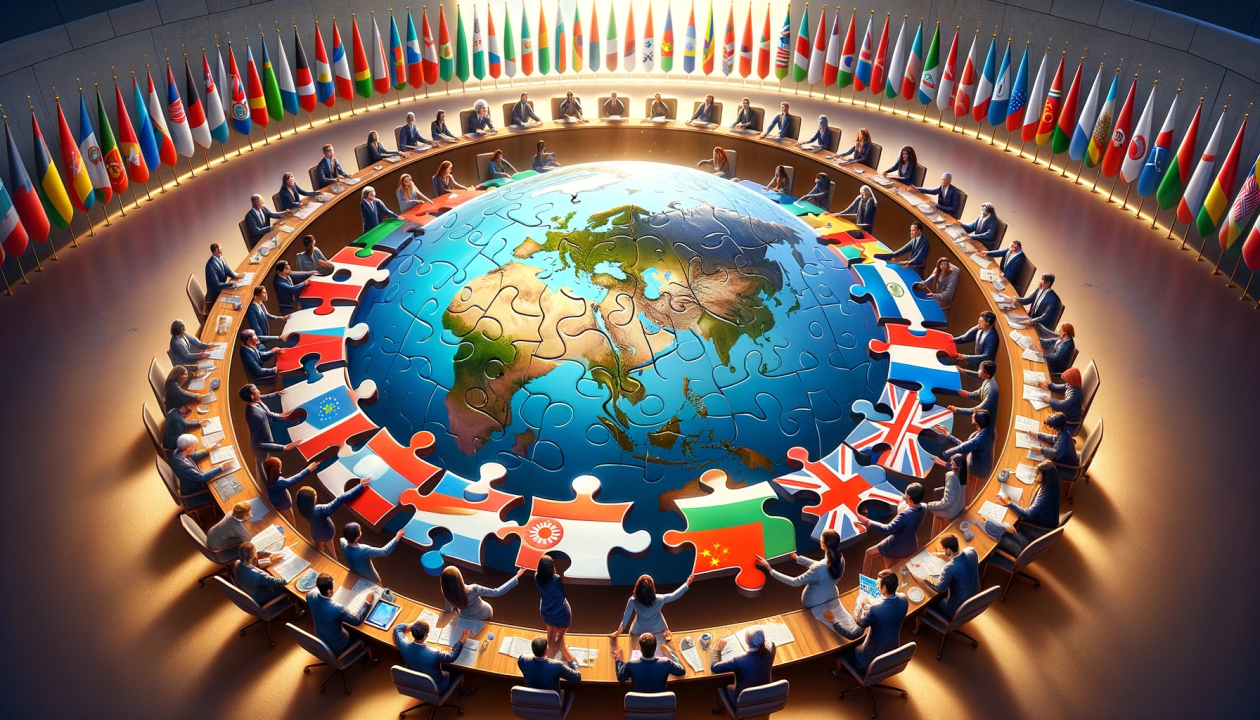
This course offers an in-depth introduction to the field of international politics, providing students with a broad yet thorough overview of the discipline. Through an exploration of key concepts, theoretical perspectives, and the continuity and change in world politics, the course aims to deepen students' understanding of contemporary global events and developments.
Students will examine the historical and theoretical foundations of global politics, exploring how various actors—nation-states, multinational corporations, international organizations, and non-governmental organizations—shape the current global landscape. Critical global issues such as climate change, inequality, human rights, migration, terrorism, poverty, and global governance will be analyzed through different theoretical lenses, providing a nuanced understanding of their impact on individuals and societies.
Using the foundational text, The Globalization of World Politics: An Introduction to International Relations by John Bayliss, Steve Smith, and Patricia Owens (9th edition), this course will equip students with the analytical tools necessary to navigate and critically engage with the complexities of global politics today.
Learning Outcomes:
By completing the course, students will:
• Develop a broad and informed understanding of world affairs, enhancing their ability to actively engage with global issues.
• Gain a deep comprehension of different theoretical perspectives on international politics and historical trends, enabling them to explain and contextualize international events and processes.
Analyze and critically evaluate arguments related to global politics, honing their ability to construct well-reasoned perspectives.
• Identify, catalogue, and interpret contemporary manifestations of global politics, demonstrating the ability to apply key disciplinary concepts such as alliances, negotiation, the balance of power, and band wagoning.
• Contrast and assess various theories of global politics, and apply these frameworks to analyze enduring questions and challenges in the international arena.
Students will examine the historical and theoretical foundations of global politics, exploring how various actors—nation-states, multinational corporations, international organizations, and non-governmental organizations—shape the current global landscape. Critical global issues such as climate change, inequality, human rights, migration, terrorism, poverty, and global governance will be analyzed through different theoretical lenses, providing a nuanced understanding of their impact on individuals and societies.
Using the foundational text, The Globalization of World Politics: An Introduction to International Relations by John Bayliss, Steve Smith, and Patricia Owens (9th edition), this course will equip students with the analytical tools necessary to navigate and critically engage with the complexities of global politics today.
Learning Outcomes:
By completing the course, students will:
• Develop a broad and informed understanding of world affairs, enhancing their ability to actively engage with global issues.
• Gain a deep comprehension of different theoretical perspectives on international politics and historical trends, enabling them to explain and contextualize international events and processes.
Analyze and critically evaluate arguments related to global politics, honing their ability to construct well-reasoned perspectives.
• Identify, catalogue, and interpret contemporary manifestations of global politics, demonstrating the ability to apply key disciplinary concepts such as alliances, negotiation, the balance of power, and band wagoning.
• Contrast and assess various theories of global politics, and apply these frameworks to analyze enduring questions and challenges in the international arena.
- Instructor: Segun Fatudimu
